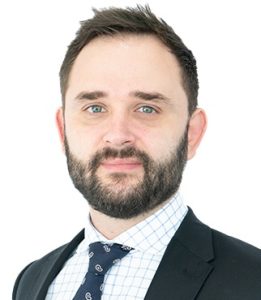Plastic & Cosmetic Surgery Lawyers
Cosmetic treatment is a thriving billion-dollar industry. Hundreds of thousands of Australians undergo cosmetic medical and non-medical procedures each year. Whilst demand is high, patient confidence in the “murky” cosmetic industry is at its lowest point it has ever been, as thousands of men and women around our country go under the knife of cosmetic surgeons and plastic surgeons in order to improve their looks and appearance, concerns about standards and the lack of regulation in the cosmetic industry mount. Many patients begin to question the safety and skill level of their plastic surgeons, cosmetic surgeons as well as cosmetic clinics due to poor surgical outcomes and the need for further corrective or revision surgery.
Our team of specialist medical negligence lawyers are experienced in acting for patients in cosmetic and plastic surgery compensation claims all around Australia. We understand the devastating effects of having suffered an injury or a poor surgical outcome, because of negligently performed cosmetic and plastic surgery procedures.
We’ll be here for you every step of the way guiding you through the process in your medical negligence claim. We have the expert knowledge, expertise and a proven track record needed to obtain outstanding results in all types of medical negligence compensation claims against plastic and cosmetic surgeons.
We’ll act for you in your plastic or cosmetic surgery negligence claim on a no win, no fee basis with no upfront costs. See our why choose us page for many more reasons as to why so many Australians choose Longton Compensation Lawyers over anyone else for their medical negligence plastic and cosmetic surgery compensation claims.
Why is there a problem in the cosmetic industry?
The problem stems from a combination of the lack of regulation and high patient demand. Anyone with a small amount of medical training can hold themselves out as a cosmetic surgeon and perform surgical and non-surgical treatments.
Is there a difference between a cosmetic surgeon and a plastic surgeon?
The difference lies in the qualifications and regulatory standards that apply to plastic surgeons and cosmetic surgeons. All plastic surgeons are cosmetic surgeons but not all cosmetic surgeons are plastic surgeons. There is usually a difference in the qualifications, training, study and experience of a cosmetic surgeon and a plastic surgeon. Cosmetic surgery is a subspecialty of plastic surgery. It is recognised as part of plastic surgery and not as different specialty.
All plastic surgeons are awarded a Fellowship by the Royal Australasian College of Surgeons. This is the only formal and recognised qualification in Surgery, Plastic Surgery and therefore Cosmetic Surgery by the Australian Medical Council. FRACS is only awarded to specialist surgeons who have completed a minimum of 12 years medical and surgical education, including at least 5 years of specialist postgraduate training. A Specialist Plastic Surgeon with the letters “FRACS” appearing after his or her name is accredited to perform invasive reconstructive and cosmetic plastic surgery. If something was to go wrong with a cosmetic surgery procedure, a plastic surgeon is usually better trained in identifying and correcting the problem due to the advanced training they undergo to become a plastic surgeon.
On the other hand, cosmetic surgeons do not usually undertake the same type of training as plastic surgeons. They are doctors that come form from various medical backgrounds with varying training, skills and experience. Some cosmetic surgeons do not hold any specialist qualifications at all and are not recognised as surgeons by the Royal Australasian College of Surgeons.
Just because a cosmetic surgeon may have less training or experience in performing a particular procedure or dealing with post-operative complications or performs a procedure at a lesser cost than a plastic surgeon, it does not mean that a lesser standard of care applies to them or that his or her actions are justified. The standard of care that applies to a cosmetic surgeon is the same standard that applies to plastic surgeon.
What should you ask your surgeon before you have a cosmetic procedure?
If you are looking at having cosmetic or plastic surgery ask you surgeon the following questions:
- Is the facility where you will have your cosmetic procedure a hospital or a registered day surgery clinic?
- Where does the surgeon usually operate? Most plastic surgeons who are Fellows of the Royal Australasian College of Surgeons will operate at public and private hospitals.
- Is your surgeon a Fellow of the Royal Australasian College of Surgeons? If so, they will have “FRACS” after their name.
- Is your surgeon awarded a Fellowship by the Royal Australasian College of Surgeons in Plastic Surgery? If so, they will have “FRACS (Plast)” after their name.
- What is the surgeon’s experience in performing a particular type of cosmetic procedure, and how many have they successfully performed in the past?
- What is the surgeon’s complication rate in a particular type of cosmetic procedure sought to be performed, what sort of complications were encountered in the past, and why they were encountered?
What are the main causes of poor surgical outcomes and complications in cosmetic surgery and plastic surgery?
The main causes of poor surgical outcomes and complications in plastic and cosmetic surgical procedures that can give rise to medical negligence claims are:
- Not listening to the patient and the patient’s expected outcomes from the surgical procedure.
- Not obtaining a proper medical history from the patient.
- Not ordering or performing necessary diagnostic testing, such as blood tests or radiological investigations including CT and MRI scans.
- Lack of advice or communication of the risks involved in a particular cosmetic procedure.
- Lack of training or experience on the part of operating surgeon (i.e. incompetence) or inexperience in performing a particular procedure or having no experience of performing a particular procedure on a regular basis.
- Poor or insufficient pre-operative planning and preparation.
- Poor or improper surgical technique or performance of the surgery.
- Not monitoring or monitoring the patient inadequately after surgery or not acting on signs of deterioration resulting in poor or improper post operative management.
- Human error resulting in incorrect location of incisions or improper surgical techniques.
- Fatigue.
- Use of illicit substances, such as drugs or alcohol, by the surgeon.
- Miscommunication between medical professionals.
- Insufficient staffing.
What plastic and cosmetic surgery procedures can result in medical negligence compensation claims?
The most common cosmetic procedures that give rise to compensation claims for medical negligence are:
- Breast augmentation or enlargement (augmentation mammoplasty).
- Breast implant removals.
- Breast lift (mastopexy) with or without the placement of an implant.
- Buttock lifts or Brazilian butt lifts.
- Chin, cheek, or jaw reshaping (facial implants or soft tissue augmentation).
- Dermabrasion.
- Eyelid lifts (blepharoplasty).
- Facelifts (rhytidectomy).
- Forehead lifts.
- Hair replacement or transplantations.
- Lip augmentations.
- Liposuction (lipoplasty).
- Lower body lifts.
- Nose reshaping or nose jobs (rhinoplasty).
- Thigh lifts.
- Tummy tucks (abdominoplasty).
- Upper arm lifts (brachioplasty).
- Botox injections.
- Cellulite treatment.
- Plumping, or collagen or fat injections (facial rejuvenation).
- Laser skin resurfacing.
- Laser treatment of leg veins.
- Vaginal rejuvenation (labiaplasty).
What complications can arise because of negligently performed plastic and cometic surgery?
The most common complications that arise out of negligently performed plastic and cosmetic surgical procedures are:
- Haematomas.
- Seromas.
- Blood loss or haemorrhage.
- Development of infection.
- Nerve damage.
- Deep vein thrombosis (DVT) and pulmonary embolism (PE).
- Organ or vascular damage.
- Asymmetry.
- General appearance dissatisfaction with outcome.
- Complications of anaesthesia.
Contact us today, and start with a free consultation by clicking “Make a Booking” to receive our preliminary expert advice.




